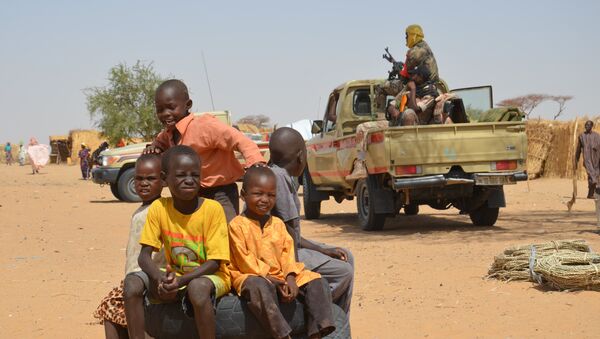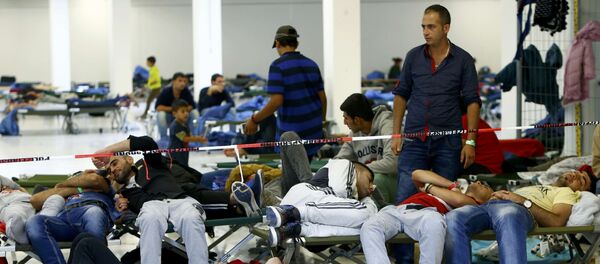Refugee children are five times more likely to be out of school than the global average, and more than six million school-age children have no school to go to, the UN Refugee Agency announced on Thursday.
UN Refugee Agency (UNHCR) spokesman William Spindler told Radio Sputnik that while global access to education has improved, refugee children are being left behind.
"We have some very positive developments, in the sense that access to education for children in general has improved. Unfortunately that has not been the case for refugee children," Spindler said.
According to the agency's new report, called Missing Out: Refugee Education in Crisis, only half of refugee children have access to primary education, compared with a global average of more than 90 per cent.
While 84 percent of adolescents across the world attend secondary school, only 22 per cent of refugee adolescents do so.
At the higher education level, just one per cent of refugees attend university, compared to a global average of 34 per cent.
"We have seen progress, but that progress has so far not benefited refugees, who have been neglected," Spindler said.
"The concern is that the capacity for refugees to contribute to the societies where they have found asylum will be very hampered by the lack of education, and also when these refugees return home after the situation that made them flee has changed, they will not be in a position to rebuild that country."
"So this has a very serious impact not only on individuals, whose lives will be blighted and much poorer as a consequence of this lack of education, but on countries, regions and the whole world."
The cost of providing education for these children must be considered in light the future social and economic consequences of not providing it, Spindler said.
"So far, the response to refugee situations has mainly revolved around the issues of emergency food, accommodation, water and, sanitation, the basic things to keep people alive. But now we have to look at more than that, we need to give them a sense of purpose in their lives and the possibility to contribute, and that's why education is so important."



